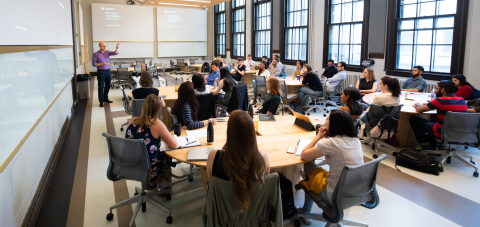Since Bangladesh enacted its Digital Security Act in 2018, a draconian law used to stifle online dissent, Amnesty International has reported that law enforcement personnel have arbitrarily detained, harassed, and tortured hundreds of journalists, activists, and media workers, and have been responsible for the enforced disappearances of many Bangladeshis. Under domestic and international pressure, Bangladesh's rubber-stamp parliament enacted the Cyber Security Act to replace the Digital Security Act. However, human rights bodies maintain that this new Act still contains draconian provisions, retaining repressive and anti-democratic characteristics.
Speaking out against the Bangladeshi government is dangerous business, which makes Aftab Ahmed’s defiance all the more remarkable. As an expat in Canada with an undergraduate degree in Economics and International Relations from the University of Toronto, he has written over 100 opinion columns for three premier Bangladeshi newspapers. In these columns, he critiques the government's policies, which have systematically eroded democratic institutions, exacerbated socio-economic inequality, weaponized technology for political oppression, and fostered a culture of impunity.
“I was living by myself for the first time without family. That made me feel kind of distant from home. Home was, and will always be, Bangladesh,” Ahmed explained. “So, a couple of years into the program, I recognized that there was an opportunity for me to write about the things I was learning in class and apply them in the context of Bangladesh's developmental and democratic journey.”
Behind Ahmed’s motivation to continue holding the Bangladeshi government accountable is a love of country. Ahmed grew up in Dhaka City, considered by many studies to be one of the world’s least liveable cities. However, he acknowledges that he was extremely fortunate. Ahmed experienced a privileged upbringing where he attended an English-speaking private school. Upon graduating, both he and his parents decided it would be best for him to study abroad.
We carry an inherent obligation to leverage our knowledge to contribute selflessly to our communities," asserted Ahmed. "In my view, that’s the least we could do. It is essential for individuals like me, who were nurtured by a society we cherish deeply, to recognize and respond to its imperfections. The pursuit of a more inclusive democracy, I believe, is an area where our collective efforts can drive substantial improvements."
Why Max Bell?
Bangladesh is slipping towards authoritarian rule, according to several human rights organizations. Yet, Ahmed firmly believes that Bangladesh’s future rests in democracy. He points to dictatorships and repressive regimes around the world as proof that undemocratic systems ultimately fail.
“You’ve seen it in the Middle East, where a notion existed that dictatorships or one-man governments would bring positive and purposeful change. It did not happen,” Ahmed pointed out. “I do not want to see that situation in Bangladesh. Even though democracy is a slow, rigorous process which can decelerate the process of economic growth as we traditionally perceive it, ensuring that development is sustainable, equitable, and inclusive is fundamental – the benefits of which should reach the pockets of the low and middle-income groups. This is not happening in Bangladesh.”
Still, he acknowledges that those who aspire to strengthen Bangladesh's democracy in practice have much work ahead to win the hearts and minds of its citizens. Especially when politicians are quick to pin economic development against democracy in a country where inequality is rampant and political apathy is taking center stage.
“How do you design a public sector independent of the political machinery? How do you ensure economic development without infringing on human rights? How do you make those things work in the context of a post-colonial society?” Ahmed asks. “And how do you ensure that societal actors, like journalists, call governments to account within the framework of an underdeveloped democracy?”
Ahmed, a 2023 MPP graduate, came to the Max Bell School a year ago in hopes of finding answers to these questions. He believed this 11-month intensive program taught by policy practitioners and academics would help him on his path toward building a career as a policy practitioner. He now works for the City of Toronto as a Toronto Urban Fellow Researcher, continues to write for Bangladeshi newspapers, and has begun contributing to Canadian policy publications. Additionally, he co-founded and runs BacharLorai, a non-profit social impact agency launched during the pandemic, aimed at empowering Bangladeshis and the Bangladeshi diaspora through policy research, community building, and signature initiatives
“I think one of the reasons I completed a public policy program is to develop the skills and the toolkit to go back someday and actually make a credible difference in the lives of people who are not only struggling economically but are having their constitutional rights violated on a day-to-day basis,” Ahmed said.
To read Aftab Ahmed’s opinion articles, follow him on LinkedIn or click on the links below.
Daily Star, Dhaka Tribune, TBS News, Policy Magazine, Policy Options, The Line, The Hill Times





